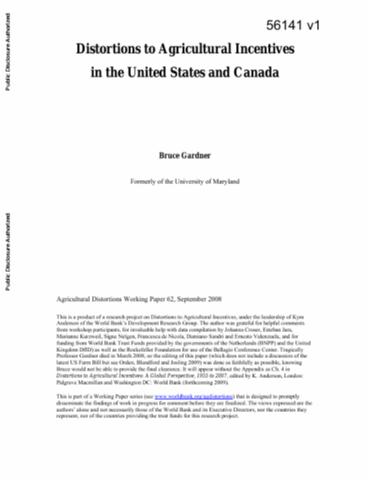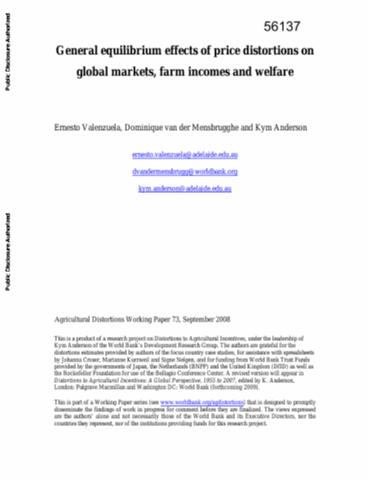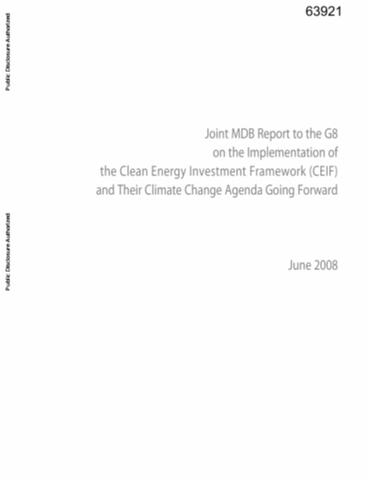The World Bank is a vital source of financial and technical assistance to developing countries around the world. We are not a bank in the ordinary sense but a unique partnership to reduce poverty and support development. The World Bank Group has two ambitious goals: End extreme poverty within a generation and boost shared prosperity.
- To end extreme poverty, the Bank's goal is to decrease the percentage of people living on less than $1.25 a day to no more than 3% by 2030.
- To promote shared prosperity, the goal is to promote income growth of the bottom 40% of the population in each country.
The World Bank Group comprises five institutions managed by their member countries.
The World Bank Group and Land: Working to protect the rights of existing land users and to help secure benefits for smallholder farmers
The World Bank (IBRD and IDA) interacts primarily with governments to increase agricultural productivity, strengthen land tenure policies and improve land governance. More than 90% of the World Bank’s agriculture portfolio focuses on the productivity and access to markets by small holder farmers. Ten percent of our projects focus on the governance of land tenure.
Similarly, investments by the International Finance Corporation (IFC), the World Bank Group’s private sector arm, including those in larger scale enterprises, overwhelmingly support smallholder farmers through improved access to finance, inputs and markets, and as direct suppliers. IFC invests in environmentally and socially sustainable private enterprises in all parts of the value chain (inputs such as irrigation and fertilizers, primary production, processing, transport and storage, traders, and risk management facilities including weather/crop insurance, warehouse financing, etc
For more information, visit the World Bank Group and land and food security (https://www.worldbank.org/en/topic/agriculture/brief/land-and-food-security1
Resources
Displaying 4771 - 4775 of 4907Distortions to Agricultural Incentives in the United States and Canada
There is much in common between the agricultural sectors of the United States and Canada. This chapter begins with a brief background on the two sectors, then reviews their histories of farm policy developments before reporting new estimates of rates of assistance to their farmers and their consequences for taxpayers and consumers. This is followed by an explanation of the politics behind the evolution and gyrations in farm policies in the two countries, and some speculation on the prospect for reform.
General Equilibrium Effects of Price Distortions on Global Markets, Farm Incomes and Welfare
Earnings from farming in many developing countries have been depressed by a pro-urban bias in own-country policies as well as by governments of richer countries favoring their farmers with import barriers and subsidies. Both sets of policies, which reduce national and global economic welfare and contribute to global inequality and poverty, have been undergoing reform since the 1980s.
Joint MDB Report to the G8 on the Implementation of the Clean Energy Investment Framework and Their Climate Change Agenda Going Forward
The 2005 Gleneagles G8 summit in July 2005 stimulated a concerted effort of the Multilateral Development Banks (MDBs) to broaden and accelerate programs on access to energy and climate change mitigation and adaptation through the Clean Energy Investment Framework (CEIF). At the Gleneagles summit, it was agreed that a report on the implementation of the CEIF would be prepared for the 2008 G8 (Group of Eight: Canada, France, Germany, Italy, Japan, Russia, the United Kingdom, and the United States) summit hosted by Japan.
Joint MDB Report to the G8 on the Implementation of the Clean Energy Investment Framework and Their Climate Change Agenda Going Forward
The 2005 Gleneagles G8 summit in July 2005 stimulated a concerted effort of the Multilateral Development Banks (MDBs) to broaden and accelerate programs on access to energy and climate change mitigation and adaptation through the Clean Energy Investment Framework (CEIF). At the Gleneagles summit, it was agreed that a report on the implementation of the CEIF would be prepared for the 2008 G8 (Group of Eight: Canada, France, Germany, Italy, Japan, Russia, the United Kingdom, and the United States) summit hosted by Japan.
Joint MDB Report to the G8 on the Implementation of the Clean Energy Investment Framework and Their Climate Change Agenda Going Forward
The 2005 Gleneagles G8 summit in July 2005 stimulated a concerted effort of the Multilateral Development Banks (MDBs) to broaden and accelerate programs on access to energy and climate change mitigation and adaptation through the Clean Energy Investment Framework (CEIF). At the Gleneagles summit, it was agreed that a report on the implementation of the CEIF would be prepared for the 2008 G8 (Group of Eight: Canada, France, Germany, Italy, Japan, Russia, the United Kingdom, and the United States) summit hosted by Japan.








